Technology Foresight Council: Cities as Laboratories of the Possible
.avif)
Last week, the Technology Foresight Council (TFC) gathered to discuss how the public sector is navigating the promise and challenges of Artificial Intelligence (AI) through real-world examples.
The session was opened by Nicklas Berild Lundblad, a government affairs professional with over 20 years of experience analyzing and shaping technology policy, and a former Head of Global Policy and Public Affairs, DeepMind Ltd.
Nicklas explained how cities are humanity’s oldest form of organization. They are collective experiments in how people live, work, and govern together. Cities have always been prototypes of possibility, constantly evolving to solve complex problems at scale.
Today, that evolution means reimagining cities once again — this time with the responsible adoption of emerging technologies, like AI, which can help shape the future of public service, equity, and trust.
More than 70% of the world's data comes from cities: they are the beating heart of the data sphere, constantly sensed, modeled, and reconfigured through the flow of people and information. By treating cities as laboratories of the possible, governments have the opportunity to pilot AI systems transparently and optimize time, taxpayer money, and resources to better serve the people.
This approach reframes AI not as an abstract technology, but as a civic tool — one that can help governments move from data collection to collective intelligence, from cost savings to trust gains, and from tech adoption to service improvement.
Lessons from Tooele County, Utah
This rang true in a case study in responsible AI adoption from IT Director Scott Persons from Tooele County, Utah.
In Tooele County, a community 35 miles west of Salt Lake City, AI is disabled by default. The county is very selective about which tools it allows. According to Scott, it was essential that any new technology not be perceived as “just another tool from IT.”
“When you build out these processes, you have to collaborate with the departments. They have to be a part of it, and they have to have listened to it. This is a collaboration to build a custom, citizen-centric system that improves efficiency through the county and utilizes tax dollars appropriately.”
Tooele County’s goals were simple: use AI to free up staff time, reduce manual tasks, and create more responsive, transparent government services.
Polimorphic Inc. developed custom-built tools to achieve these goals. Working directly with Tooele County departments, Scott and Polimorphic carefully mapped existing processes and built systems that streamlined critical workflows such as business licensing and records management. The approach was considered and methodical: Scott began with departments most ready for change and identified internal champions willing to provide honest feedback throughout the rollout.
By reducing manual steps from nine to three and automating key workflows, the county achieved a remarkable 45% efficiency gain in the county recorder's office, dramatically reducing citizen wait times and improving service delivery. That efficiency gain is a testament to a thoughtful approach that puts citizens and staff at the center of technological change. Scott plans to expand AI implementation into additional departments.
Responsible AI is not about theory; it’s about practice. It means building a responsive cycle of development — one that’s transparent, ethical, and measurable, to drive citizen-centric approaches that prioritize taxpayer value and excellence in serving communities. And that’s exactly what Tooele County is doing.
Nicklas highlighted four lessons that stood out from Scott’s transformation efforts.
- “The overarching idea of being a careful steward of taxpayer money, I think, is a really important one, and implementing AI for the sake of AI is not that. I think it is worth highlighting this notion that Tooele County started with processes. Scott didn't start the software and ask, ‘What can this thing do, and what are the capabilities of this?’ He asked, ‘What are the processes we have? How can we map those out?’”
- “More specifically, Scott asked, ‘What are the kinds of processes that lend themselves to become a pilot before we go on, before we do more advanced things?’ There's a ton of wisdom in that, to start with the problem you want to solve, the decision you want to inform, the process you want to improve.”
- “I think the emphasis on transparent accountability all along the way in those processes is extraordinarily important. You're able to audit and account for what is happening, which also allows you to build trust: something that is so incredibly important.”
- “I’m really impressed with the focus on measurable results, that 45% efficiency gain that Scott could measure. I think a lot of people could win a lot of internal kudos if they really looked at trying to measure the efficiencies that they are creating.”
A thank-you to Clay Pearson, Interim Director of Alliance for Innovation (AFI), and Mayor Tim Rosener of the City of Sherwood, for facilitating this discussion.
Inspired by Tooele County’s responsible AI transformation?
Use the TXShare Cooperative Purchasing Program to access the AI Consulting contracts and AI Solutions contracts, and discover Polimorphic Inc. and other award-winning AI solutions driving measurable impact for cities and counties.

Join the Technology Foresight Council today
The Tech Foresight Council is a collaborative initiative led by the Alliance for Innovation (AFI), the North Central Texas Council of Governments (NCTCOG), and TXShare, with support from Civic Marketplace. TFC provides a space for innovative leaders from across the U.S. to share their experiences with current procurement challenges and to champion strategies for streamlining operational inefficiencies.
Sign up to be notified about upcoming TFC events, and gain insight into live case studies and inspiring collaborations between the public sector and today’s tech innovators.


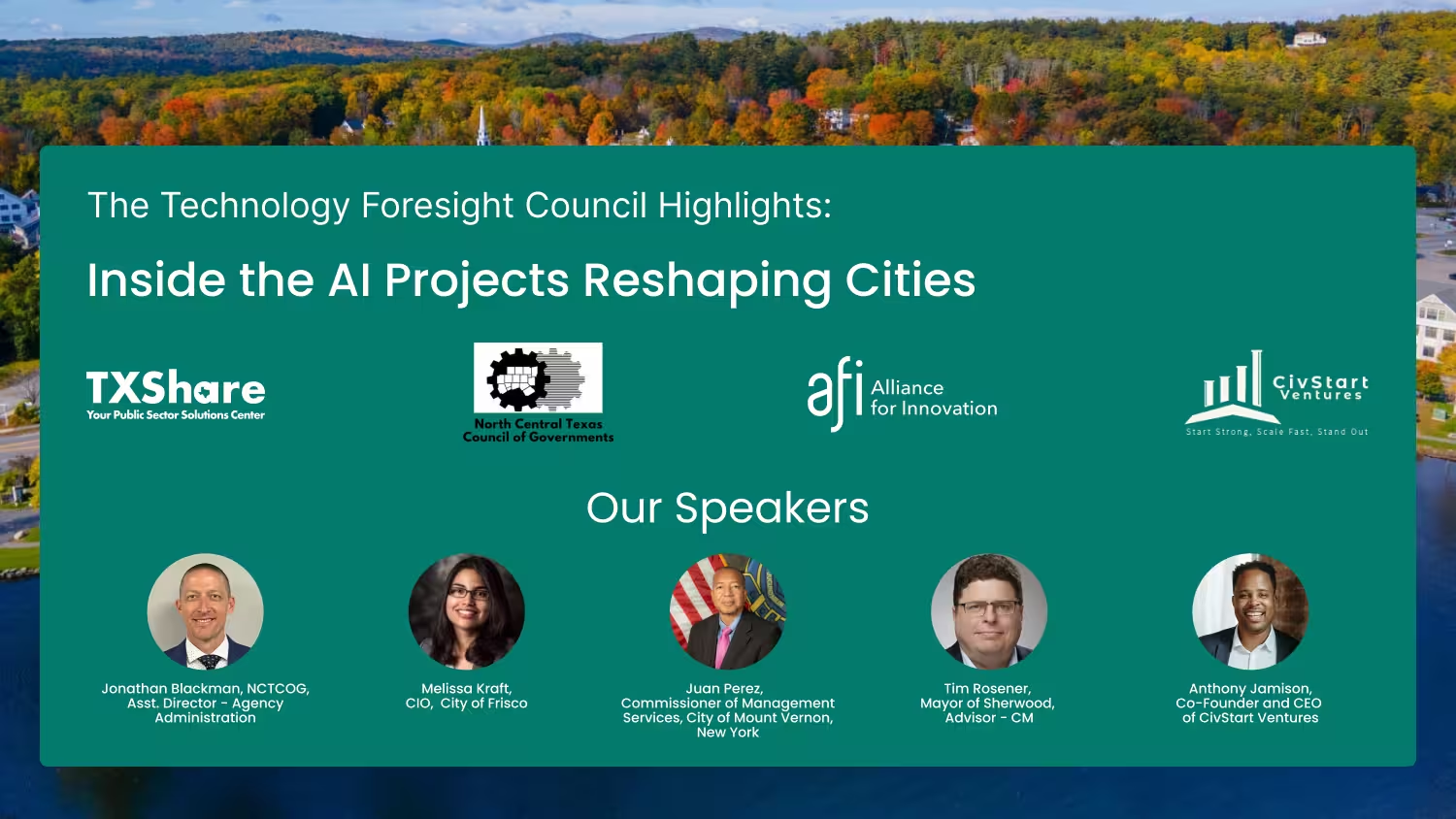
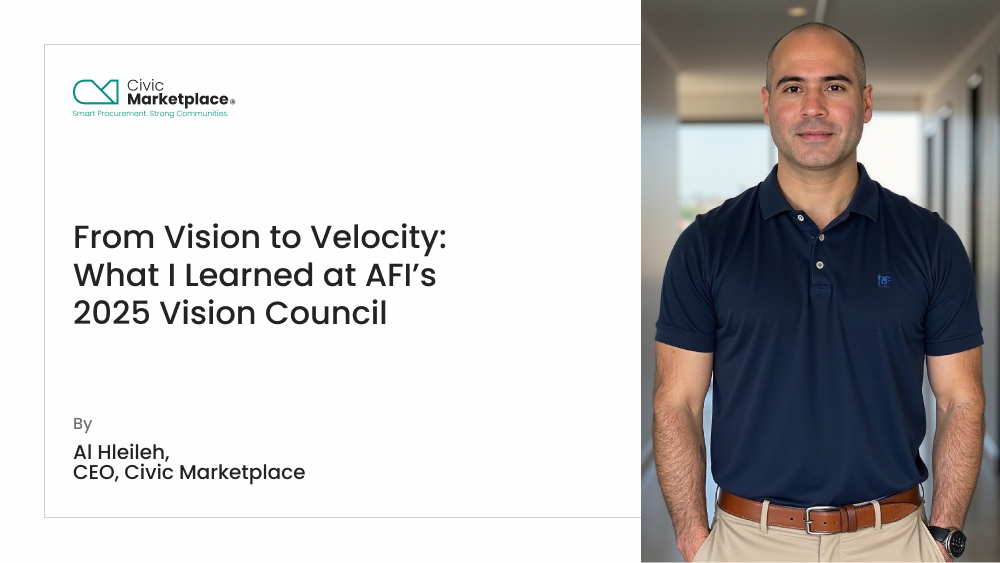
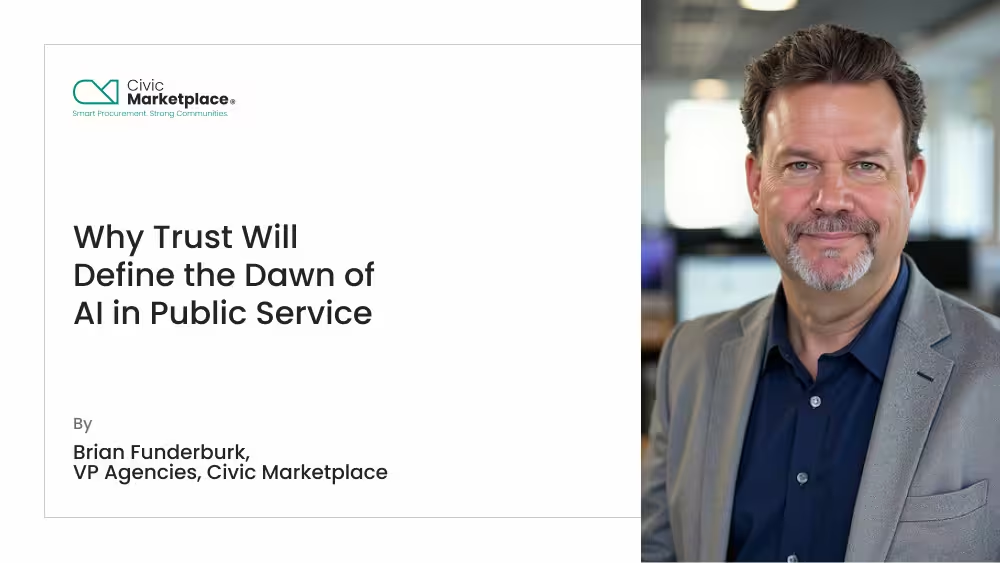
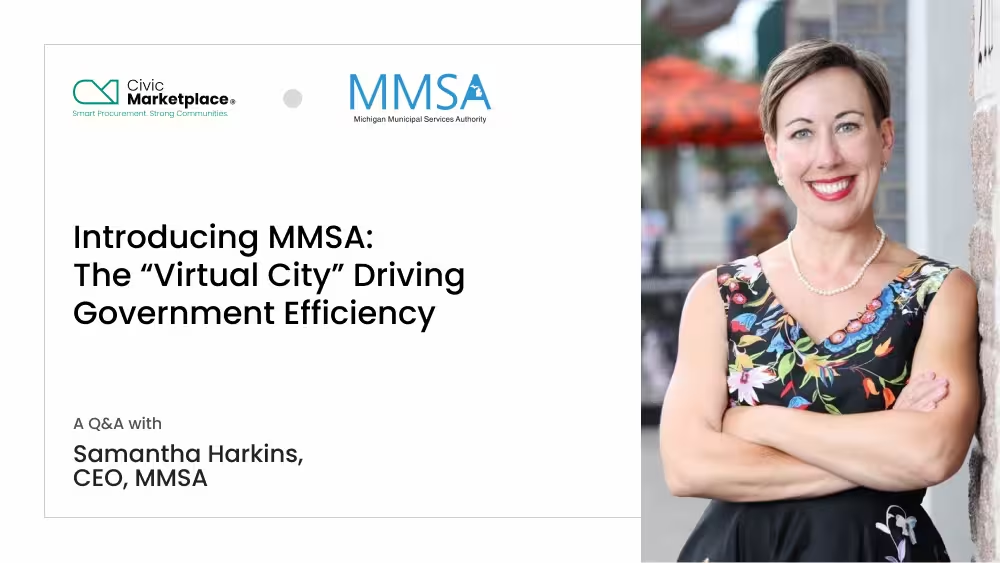
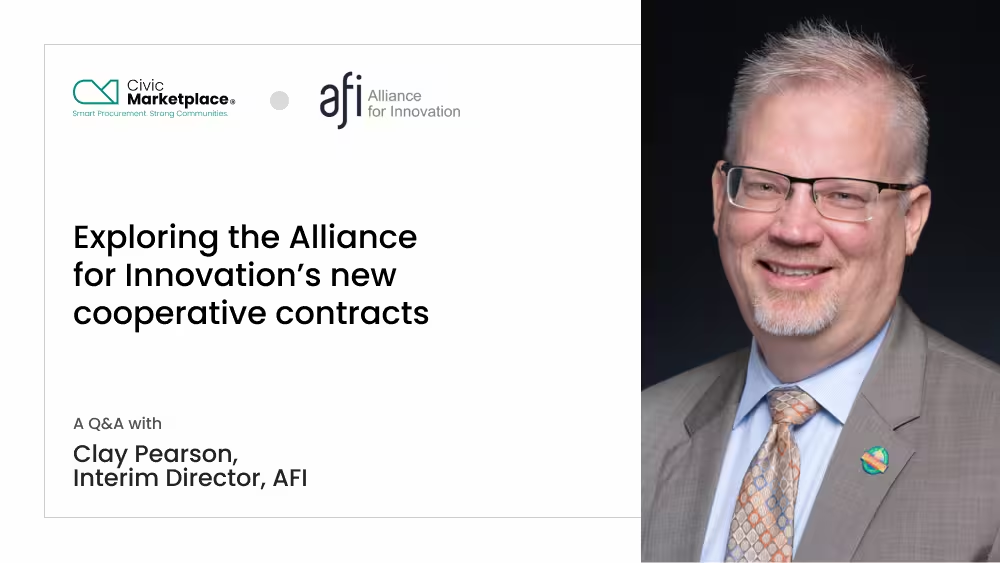
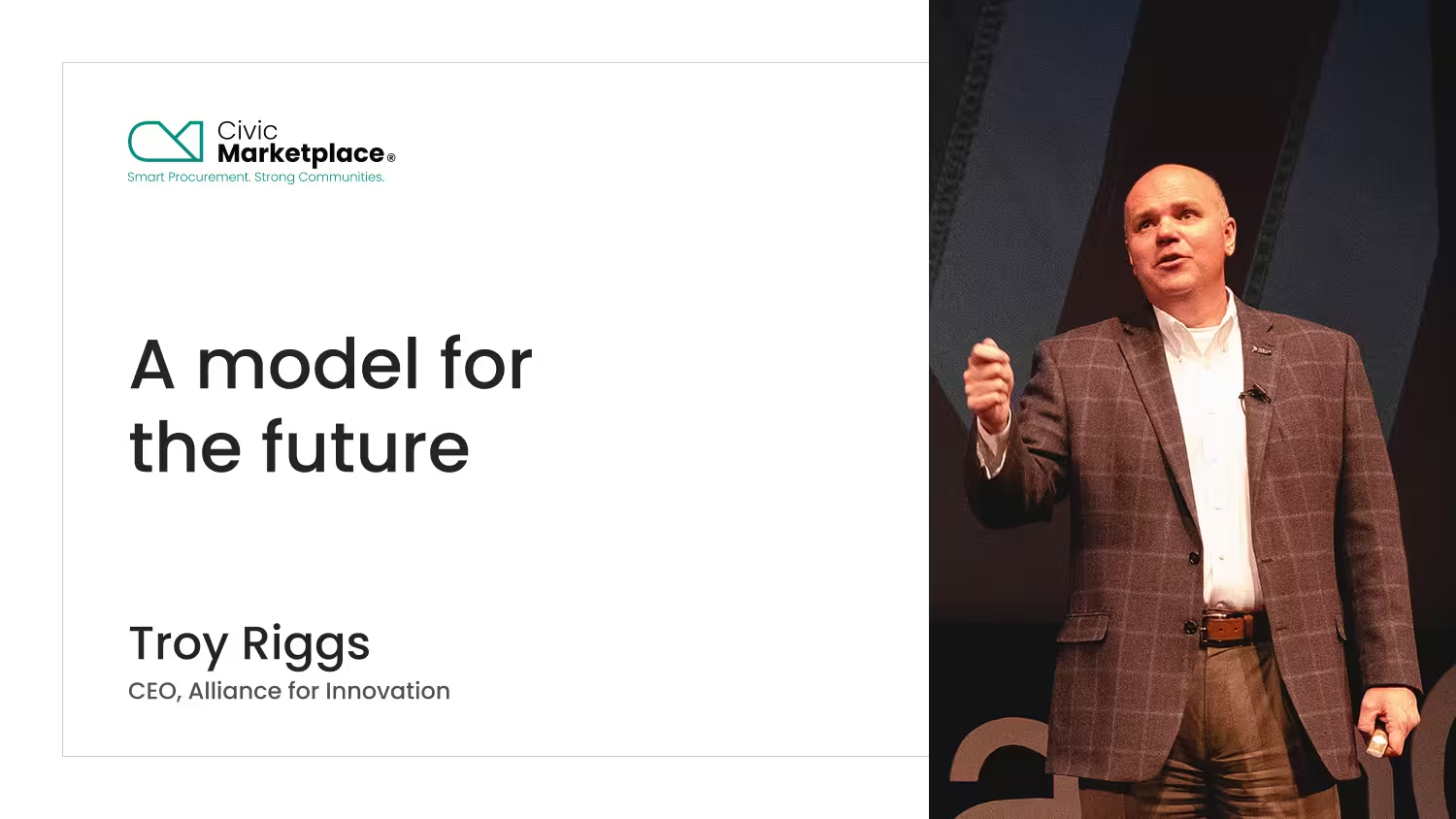
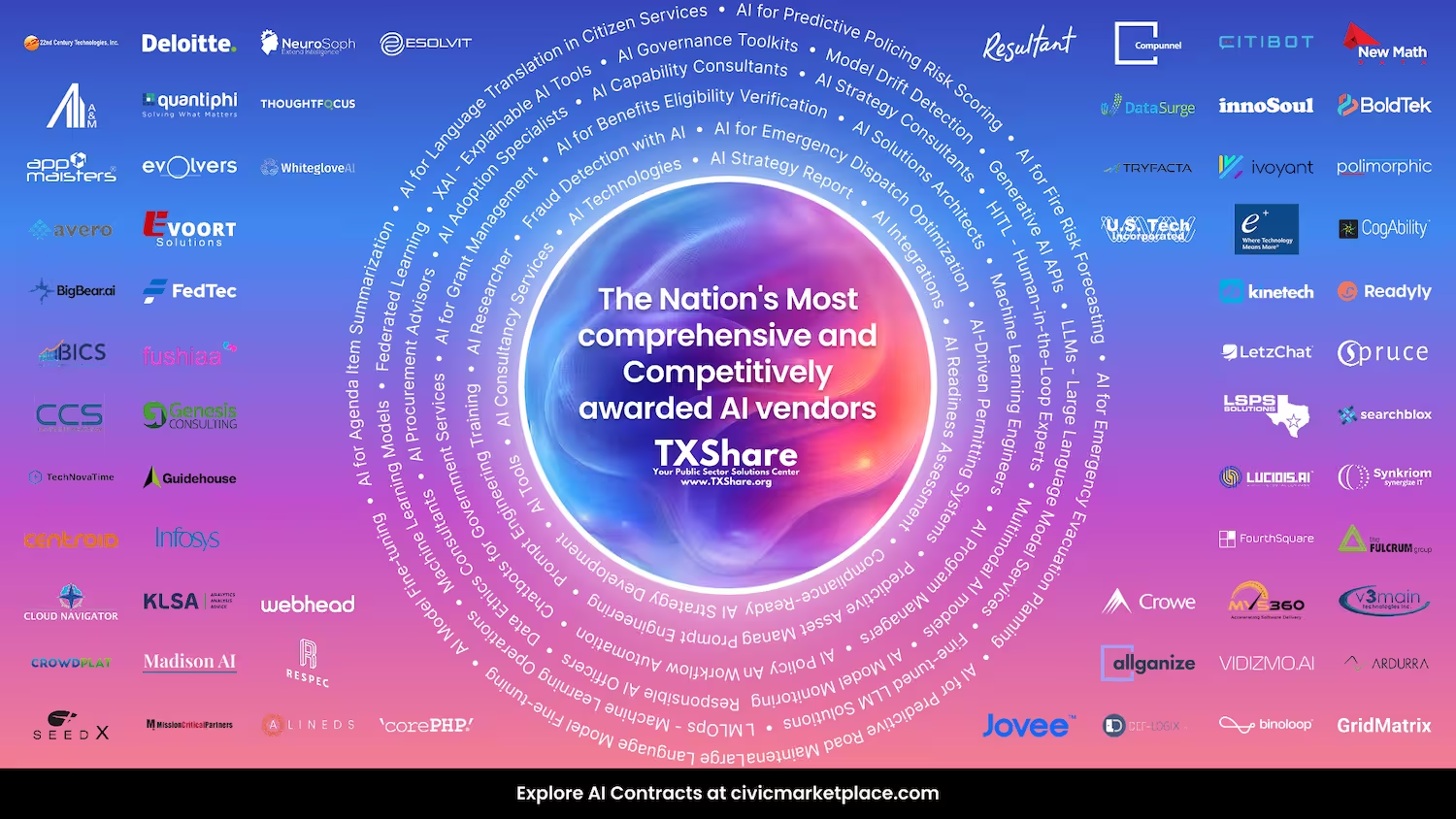
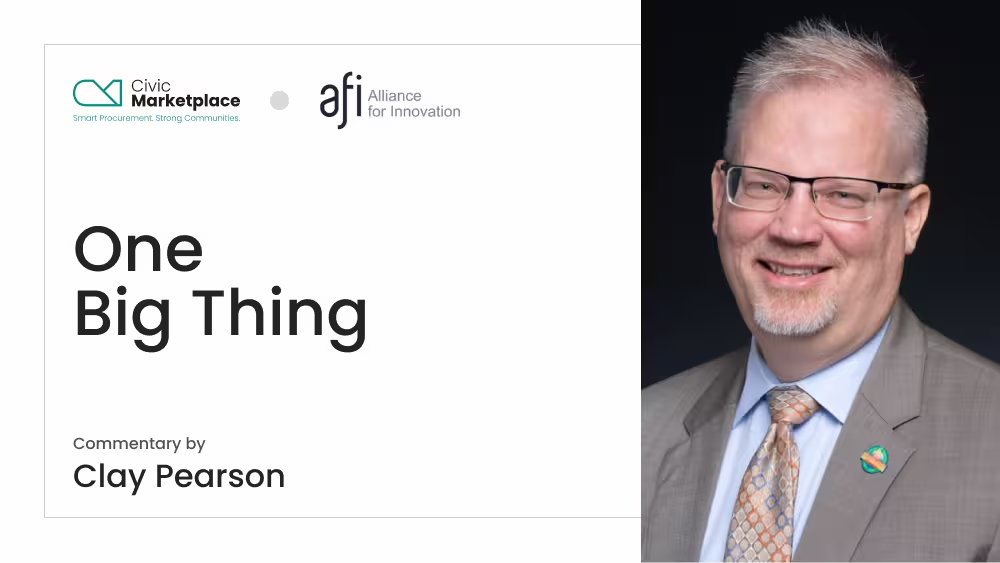
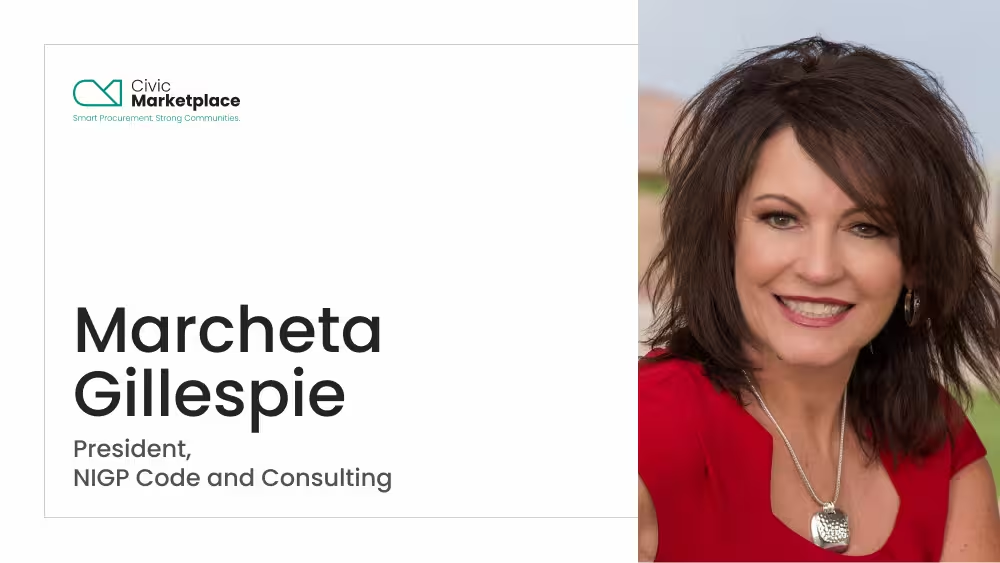
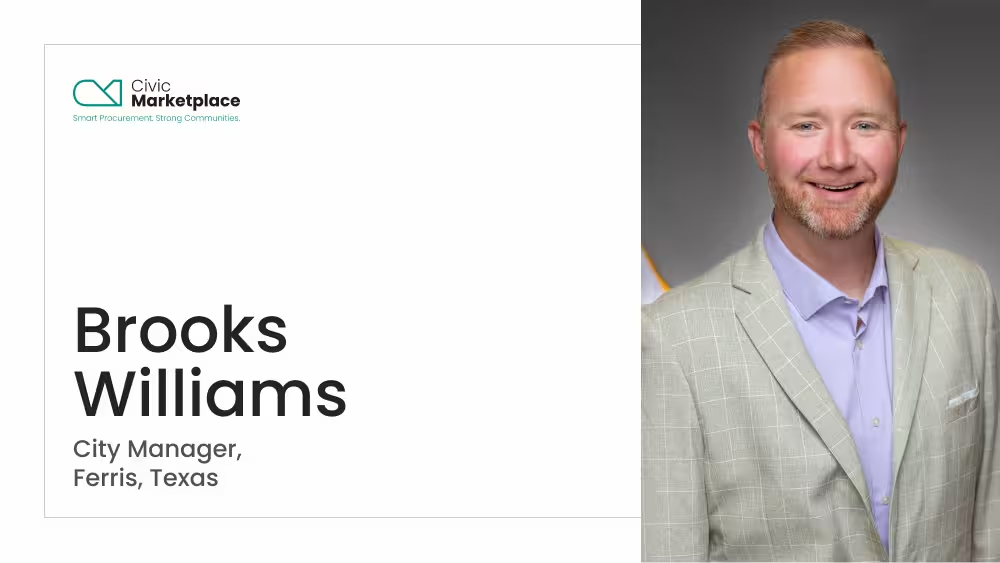
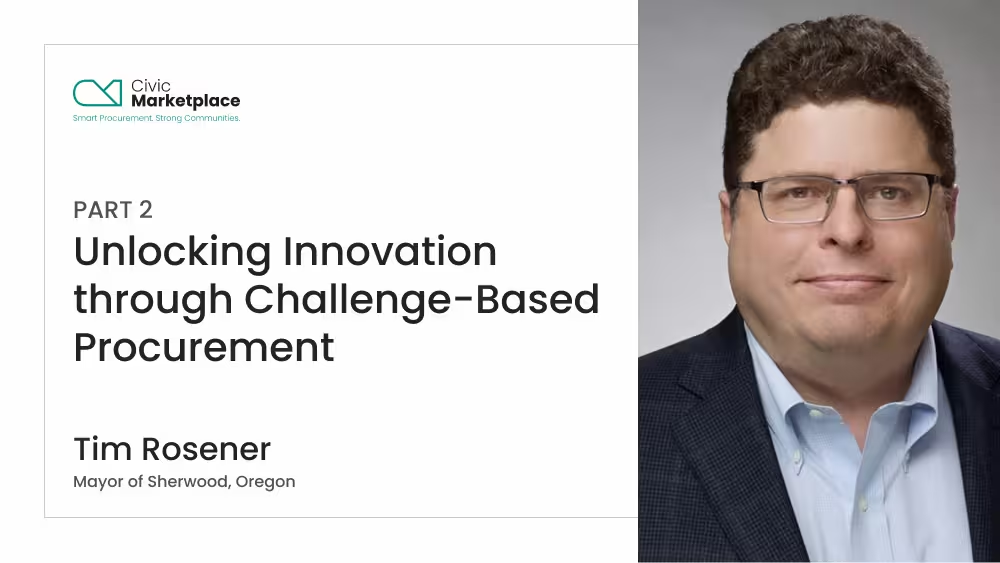
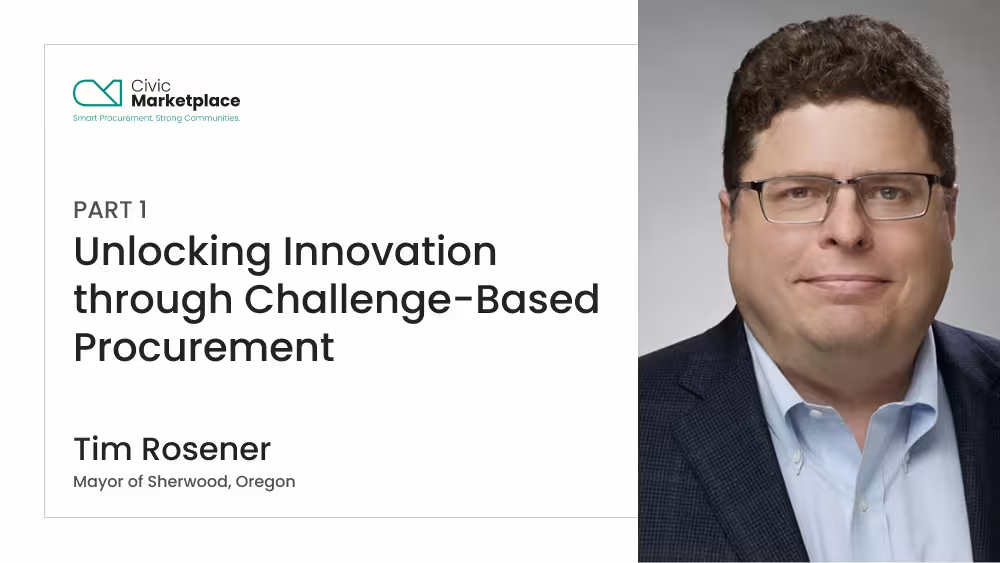
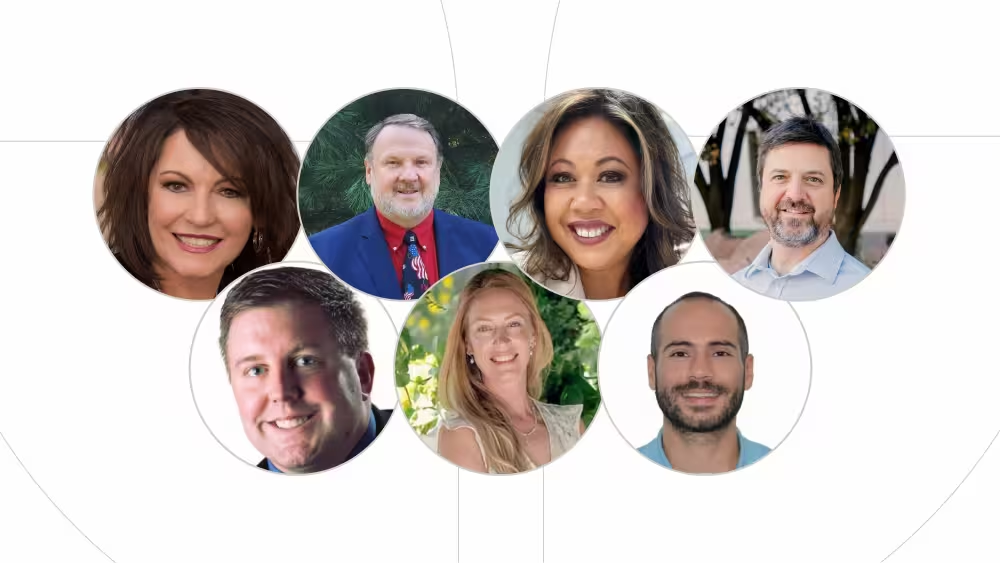
.avif)